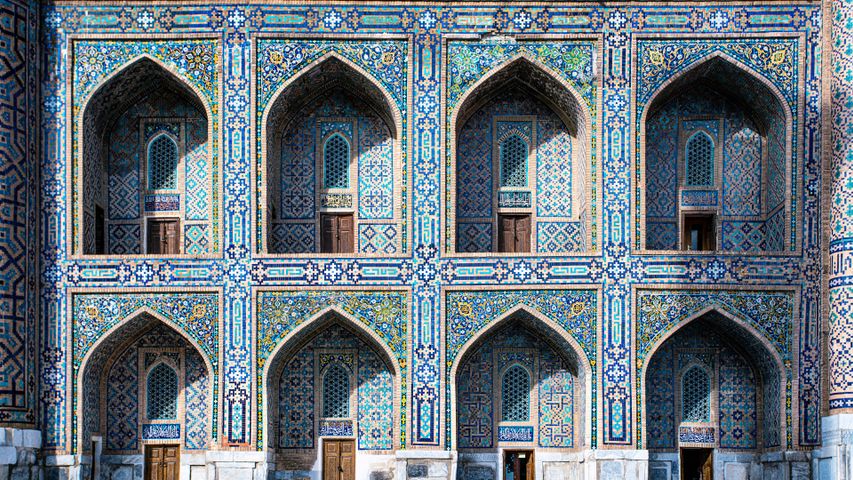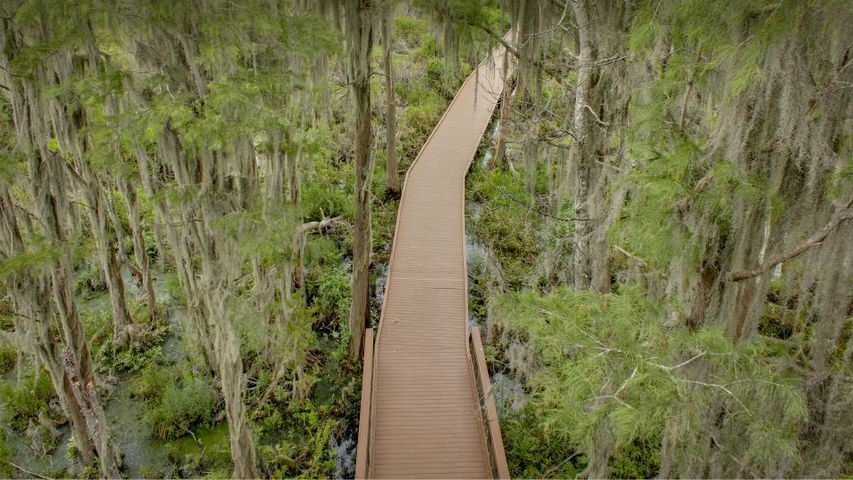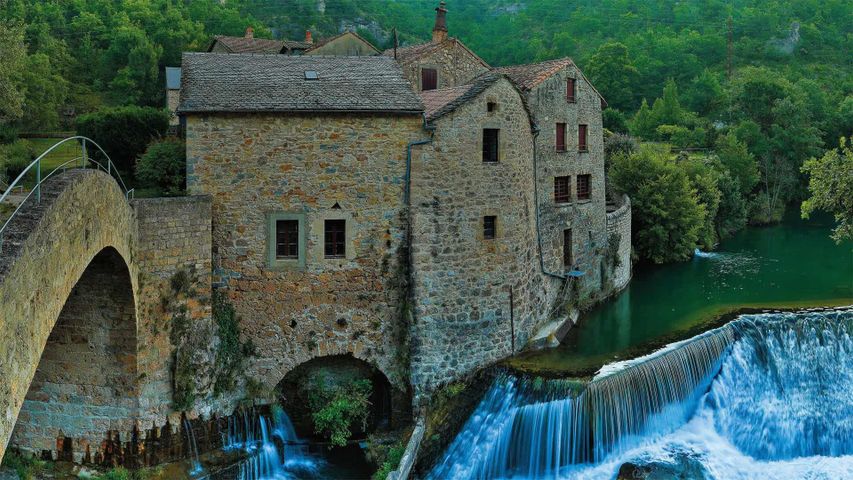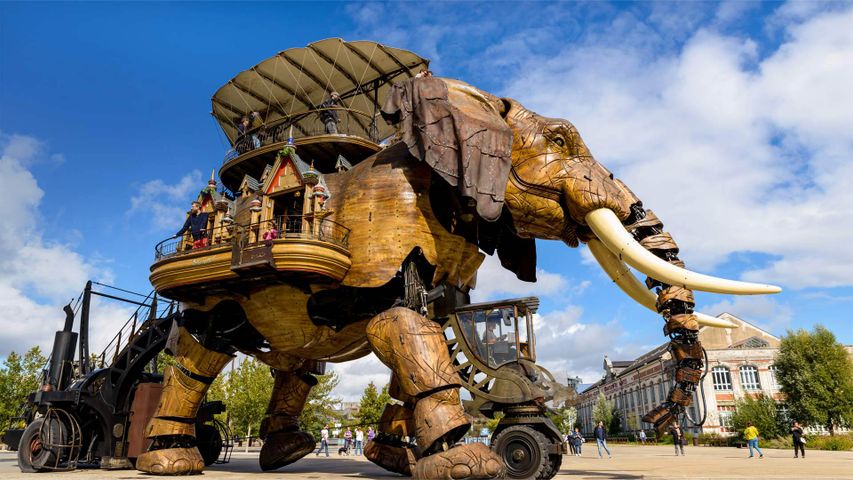Elephant walking in the Okavango River, Botswana
© Markus Pavlowsky/Getty Image
The world's greatest oasis?. Okavango Delta, Botswana
At a glance, this might look like some ordinary swamp, but the Okavango Delta in the African nation of Botswana is a veritable miracle of nature. Unlike most rivers, the Okavango River doesn't drain into any sea or ocean, but rather empties into the open savanna. Thousands of elephants, and just about every other type of African animal you can name, owe their existence to this annual wetland. 'Annual,' because the marshland of the delta swells threefold to its full size but once a year, between March and July, when the seasonal rains from the highlands of Angola flow downhill 750 miles until they flood the arid savanna of northwest Botswana. The wildlife drawn to this life-sustaining water includes lions, leopards, cheetahs, rhinos, giraffes, zebras, hippos, wildebeests, hyenas, crocodiles, impalas, and of course elephants, the planet's largest land animals.
By far, most of the world's elephants—more than 400,000—live in Africa, and Botswana is the country with the largest population of African elephants. The majority are bush elephants, larger than their cousins, the African forest elephants who live in the Congo Basin. Bush elephants have concave backs and their tusks curve outward, while forest elephants have straight backs and tusks. Both are endangered by habitat loss and poaching. Their population is about a tenth of what it was at its peak in the last century.
Moremi Game Reserve makes up a large portion of the delta. The rest is protected by a mosaic of other preserves called Wildlife Management Areas. In 2014, the Okavango Delta was placed on the UNESCO World Heritage List. The amount of water that fills the delta is estimated to be 2.6 cubic miles, four to five times the volume of water contained in Lake Okeechobee in Florida. Eventually much of this water will be consumed, absorbed, and evaporated, and the delta will once again more closely resemble the savanna around it. Until the next rains come.
Related Images
Bing Today Images
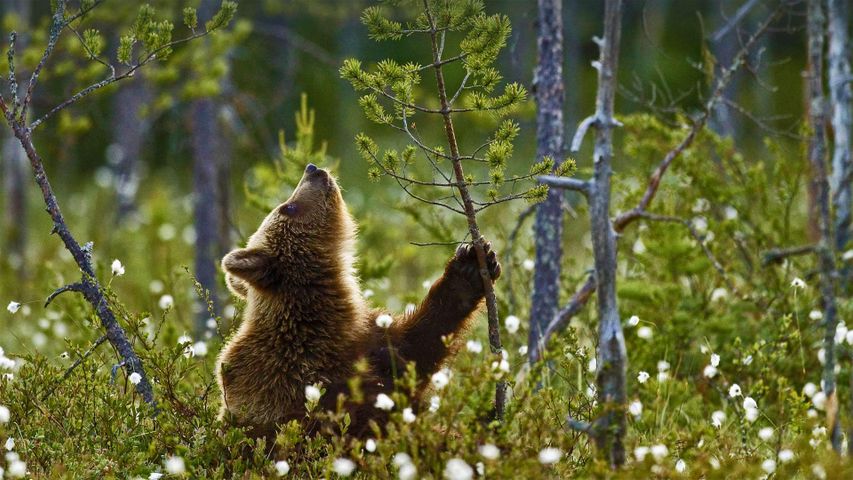
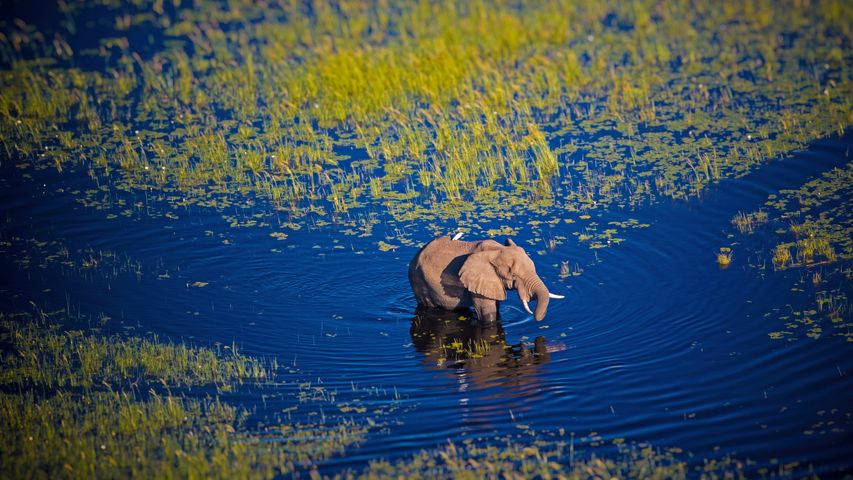
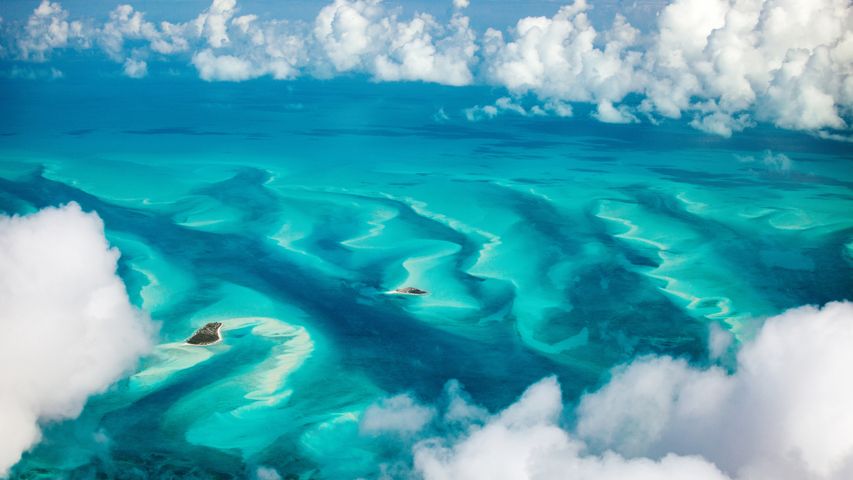 Turquoise waters of the Bahamas
Turquoise waters of the Bahamas
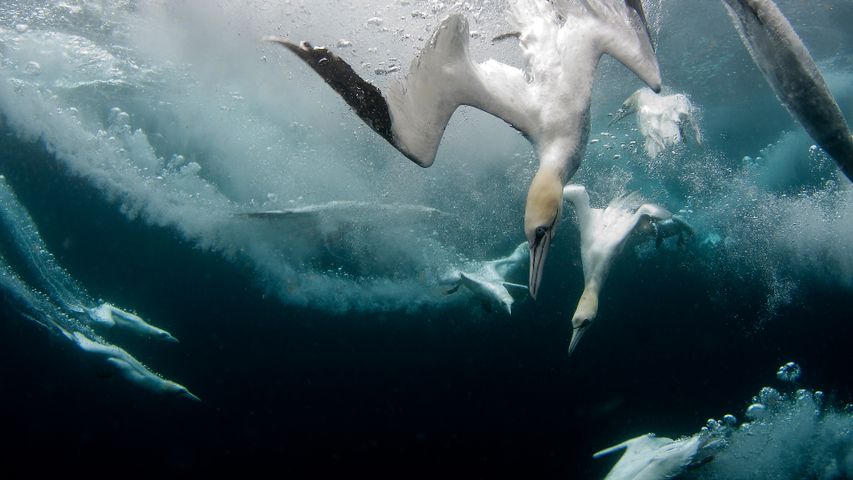 Northern gannets diving for fish, Shetland Islands, Scotland
Northern gannets diving for fish, Shetland Islands, Scotland
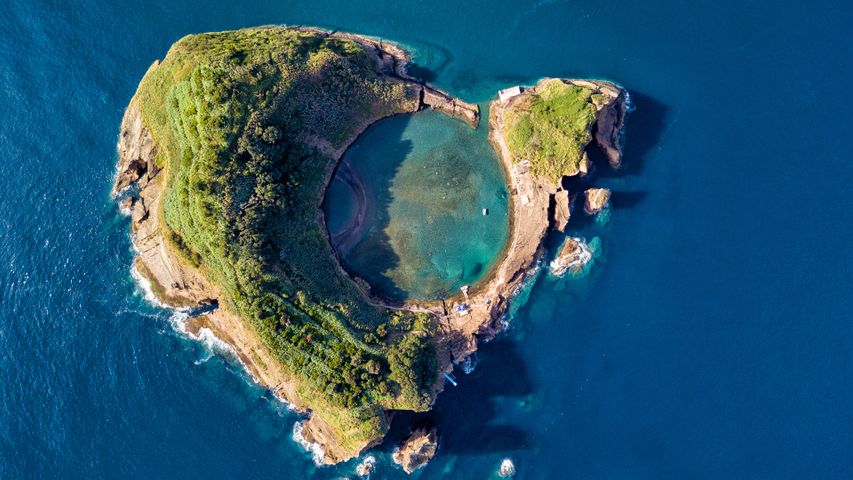 Vila Franca Islet, São Miguel Island, Azores, Portugal
Vila Franca Islet, São Miguel Island, Azores, Portugal
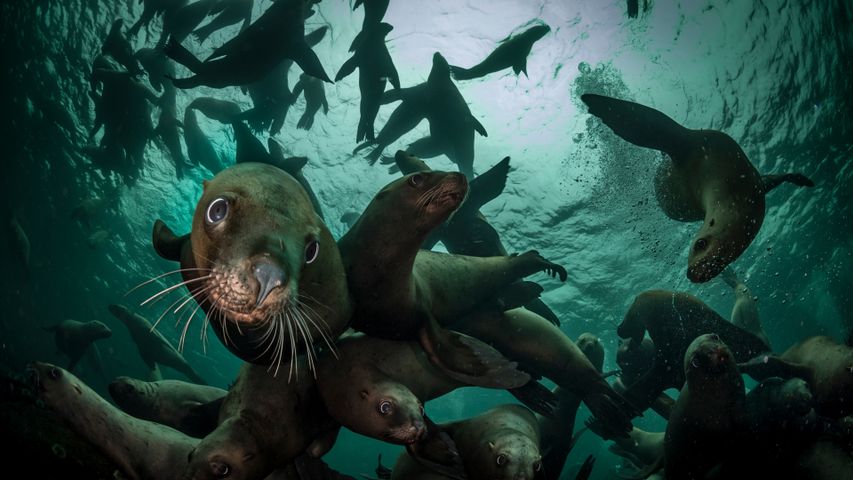 Steller sea lions, Vancouver Island, British Columbia, Canada
Steller sea lions, Vancouver Island, British Columbia, Canada
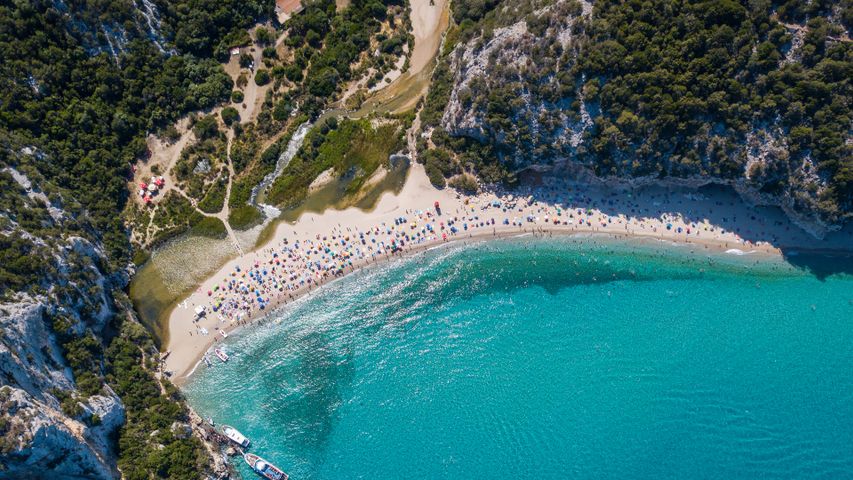 The beach at Cala Luna, Sardinia, Italy
The beach at Cala Luna, Sardinia, Italy
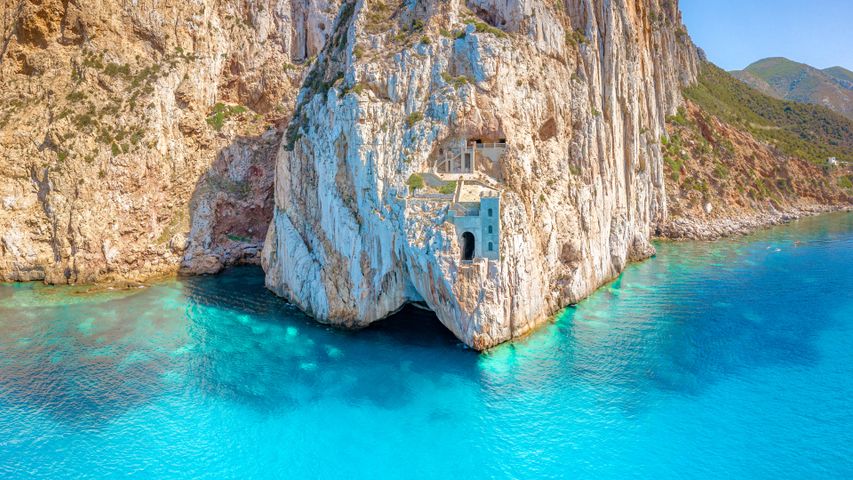 Porto Flavia, Sardinia, Italy
Porto Flavia, Sardinia, Italy
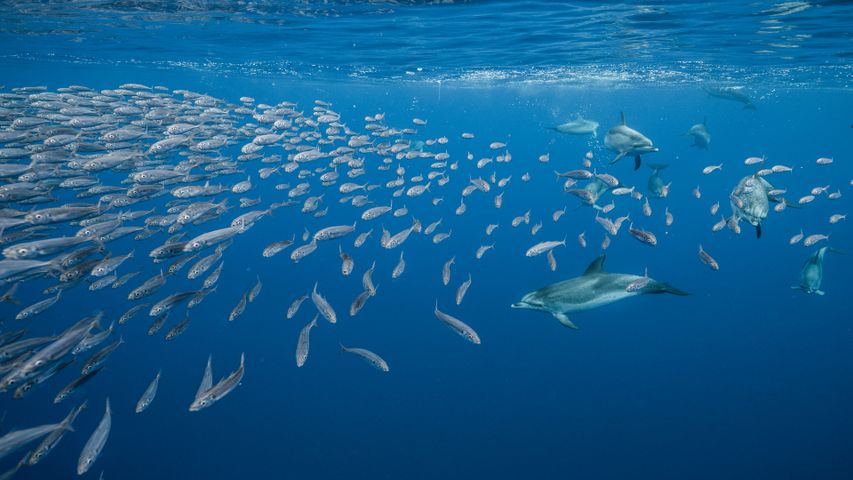 Atlantic spotted dolphins near Santa Maria Island, Azores, Portugal
Atlantic spotted dolphins near Santa Maria Island, Azores, Portugal
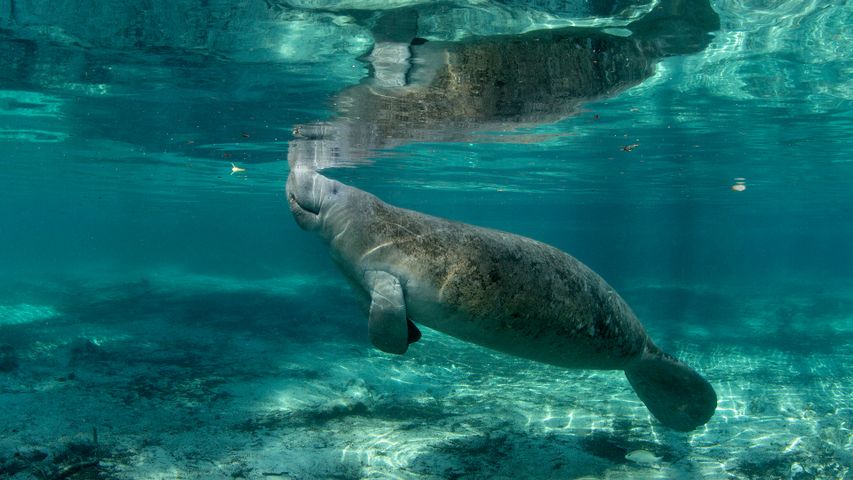 Manatee in Three Sisters Springs, Crystal River National Wildlife Refuge, Florida
Manatee in Three Sisters Springs, Crystal River National Wildlife Refuge, Florida
